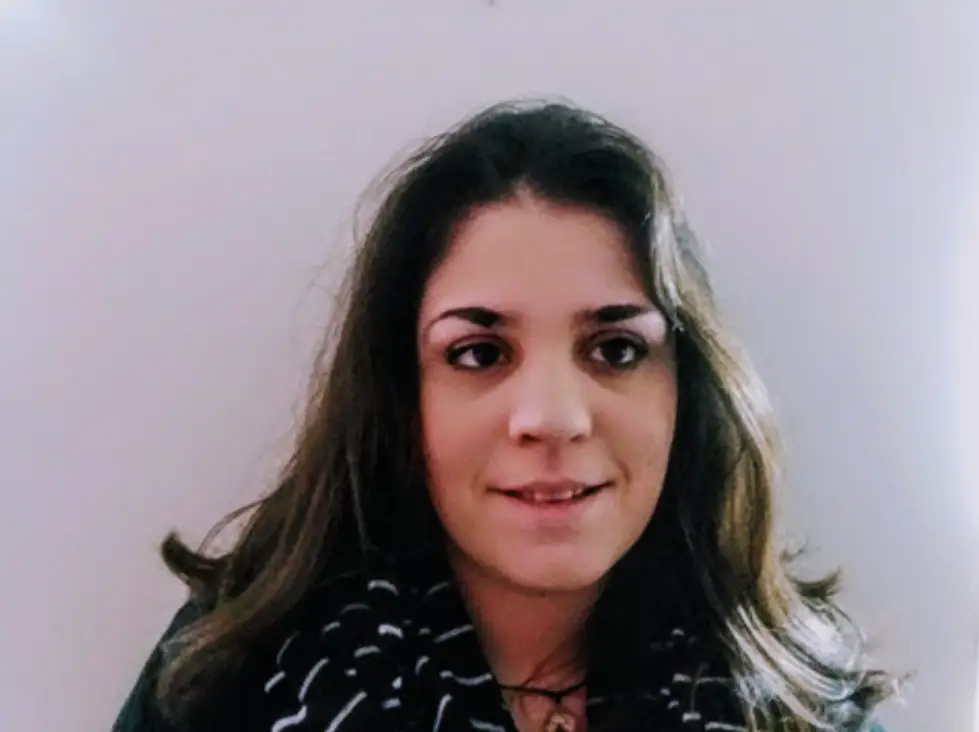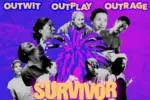There’s perhaps no better time for self-expression than college. A freshman at UC Berkeley has made artistic expression one of her primary focuses by embarking on a creative journey to write a musical, which is tentatively titled “Walls: The Story of Gertrude Vanderbilt Whitney.”
Inspired by an inspirational woman and a painting, Eleanor Hammond has her sights set on a future in musical theater. Hammond is exploring ways to expand the genre by introducing themes about feminism and female empowerment and experimenting with unusual genre mashups. I spoke with Eleanor about her inspiration, her creative process and her plans for the future.
Tabitha Prisinzano: I definitely want to talk about the musical. It is based off a real person with a real story, so tell Study Breaks readers — who haven’t read the Daily Californian article — a little about what the musical is based on.
Eleanor Hammond: It started off in this musical theater program I participated in called Sarah Lawrence. The assignment was to visit the Whitney Museum in New York and pick a painting or a piece that inspired a song or dance.
I saw this portrait of Gertrude Vanderbilt Whitney. I thought I didn’t know who she was, but I knew the museum was named after her. Initially, she caught my attention because she was in an S-curve position, kind of like the famous Botticelli painting of the goddess Venus. It is just a very sensual position.
Usually, in the art world, women painted in this sort of position were painted nude and looking down, more sexual and submissive. Yet, in the Gertrude Vanderbilt Whitney painting, she was wearing pants and looking directly at the viewer; I felt this painting was addressing the male gaze, and thought that was interesting.
Because I was intrigued, I read the caption of the painting. It noted that Gertrude wasn’t allowed to hang this painting in her home because her husband didn’t approve of the fact she was wearing pants. Reading that caption, along with admiring the painting, inspired my first song for the musical, called “Walls,” which is just my take on the couple’s last conflict.

I didn’t know about her life or experiences, except for what I’d just read, but I pictured her hanging the painting, her husband not approving and her sort of standing up for herself. The song sort of reflects the moment she realizes she needs a change and wants to start a museum.
The story is about a young woman overcoming her husband’s oppression and opening a museum in New York: The Whitney Museum. In turn, the museum became a place for all kinds of artists to share their ideas.
Another interesting thing is that she’s from the Vanderbilt family, which was the wealthiest family in America at the time. The musical is set during the turn of the century, in the ‘10s, ‘20s and even a bit into the ‘30s in America. She died in the ‘40s.
She was a member of the richest family, and I’m interested in how the money repressed her as a woman. In her biography, which I’m reading for historical context, the author talks a lot about how Gertrude felt the money around her made her feel as though she had no control, and how she felt like she had no place to call her own or to control.
TP: Because she didn’t have control of her own money?
EH: Well, her space, really. I got this idea from her niece, Gloria Vanderbilt’s, biography. Gertrude always felt like the only thing she had in her life that she could control was a dollhouse. The adults around her were all preoccupied with money and their finances. No one ever told the children they loved them or valued them; those themes are being included in the play.
TP: Is the story you’re writing entirely based off true events gathered from Gertrude Vanderbilt Whitney’s biography? Did you add or embellish anything?
EH: It’s historical fiction, but it is basically her life. The biography I’m reading includes every year of her life, so it’s extremely dense. I’m obviously not going to be able to include everything. Her and Gloria’s stories are very similar. I’m dramatizing the ideas through music and using some liberty as a writer.
TP: Tell me a little about how you started playing music. You play guitar and piano, right?
EH: I only started playing piano again recently. When I was little, I had a teacher for about a year, but she moved away. I always wanted to write songs though. I had this bug inside me to write music, you know? So, when I was about 11, I started writing songs and I met this woman who taught music lessons. Eventually, she taught me how to play the guitar. After I learned, I just constantly wrote songs.
Over the past year or so, I started playing piano again. Mainly because I realized I do want to go down the path of musical theater; to do that, you have to know how to play the piano. So now I’m taking piano lessons, while also continuing to write songs.
TP: Earlier you had mentioned the initial inspiration for the musical was the presence of the “male gaze” in Gertrude’s portrait. Tell me a little about what you mean by the male gaze and how Gertrude’s story is significant for modern feminism.
EH: To use Botticelli’s art, for example, women in art are often portrayed as submissive or demure, with their eyes looking down and not facing the viewer. I call this the “Venus” position because Venus is the most popular representation of this idea in art. These portrayals of women in art are super submissive and sexualized.
Her posturing is more male though because she’s looking up and directly at the viewer. She can catch you looking at her, which kind of challenges the power position of the sexualization of women if that makes sense.
TP: Tell me a little bit about the writing process. How much time is it taking up? Or at this point are you done with the writing process and leaning more into the production process?
EH: At this point, the writing process is a bit scattered because I’m obviously a student and I can’t always focus on it since I’m executing this completely on my own. I do a lot of research during breaks at school and sometimes even write songs during those brief periods.
I also take time to read Gertrude’s biography, which is about 800 pages and super dense, so I haven’t had time to finish it just yet. It’s taking a bit longer to finish her biography because when I do find ideas in it that stand out, I take the time to explore and research the people written about, or write a song or complete a scene. I’m slowly discovering the major parts of her life.
My creativity comes in bursts, especially when it comes to songwriting, but I feel like the more I learn about her life, the more inspired I become. But yeah, I’m still heavily focused on the writing process; production probably won’t happen for another year or so.
TP: Do you see a definitive timeline for the project then?
EH: Yes! My goal is to have it completed by my senior year. Right now, I’m a freshman, so a couple years.
TP: What style of music is the musical going to be? I know you’re mostly a guitar player, so are you deviating from the singer-songwriter vibe at all in this production?
EH: Well, I’ve been taking music lessons and my composer has been teaching me different styles and I’ve been experimenting with them. Although I do incorporate my own singer-songwriter style, my composer is challenging to mix modern styles with history.
There are a few twists of course, but as of right now, I think I’m incorporating music from the ‘10s – ‘20s, like blues and ragtime as well as modern music in order to add a personalized element to the musical. I’m also experimenting writing in different genres, like rap.
TP: Rap?
EH: Yeah, it’s going to be a bit a mashup of styles. It’s going to take a while to make things flow, but I definitely want there to be a mixture of genres in there.
TP: Have you done any acting in the past?
EH: Yeah, I do a lot of acting actually. I do at least two productions a year, so I’m a very active performer. I’ve written things for other people, have taken acting classes, film classes and even done some commercials. I’m constantly working on things.
TP: How do you find time to do homework in between your acting and writing responsibilities?
EH: It’s been a struggle, especially this semester since I signed up for way too many classes, but I just try to tough it out. I really don’t know, I just take things one day at a time and focus on what’s important. It really brings me joy to do all these things though, so I figure it out.
TP: What advice would you give to other students who might be looking into writing or playing music on fitting it all in?
EH: Oftentimes, I worry about certain commitments I have, and, in a lot of ways, I’m still figuring it out. It’s all about prioritizing and figuring out what’s really important. This is probably going to get deep, but a few people have told me that they can’t fathom how I make the time for everything, or that they wish they could do what I’m doing. They wish they had they had the courage to be a theater major or doing something more artistic, or just take more of a risk.
I thought I should take that risk because this is the one life I have, I might as well just enjoy it and do the things I love. So, I’d say, if there’s something you really love, do it, find the time for it and fit it in. I feel like that’s so important.
Going back to Gertrude Vanderbilt Whitney, she opened this museum and she always had jobs and still managed to do it all, and now look at her. If she can do it, so can you.

















